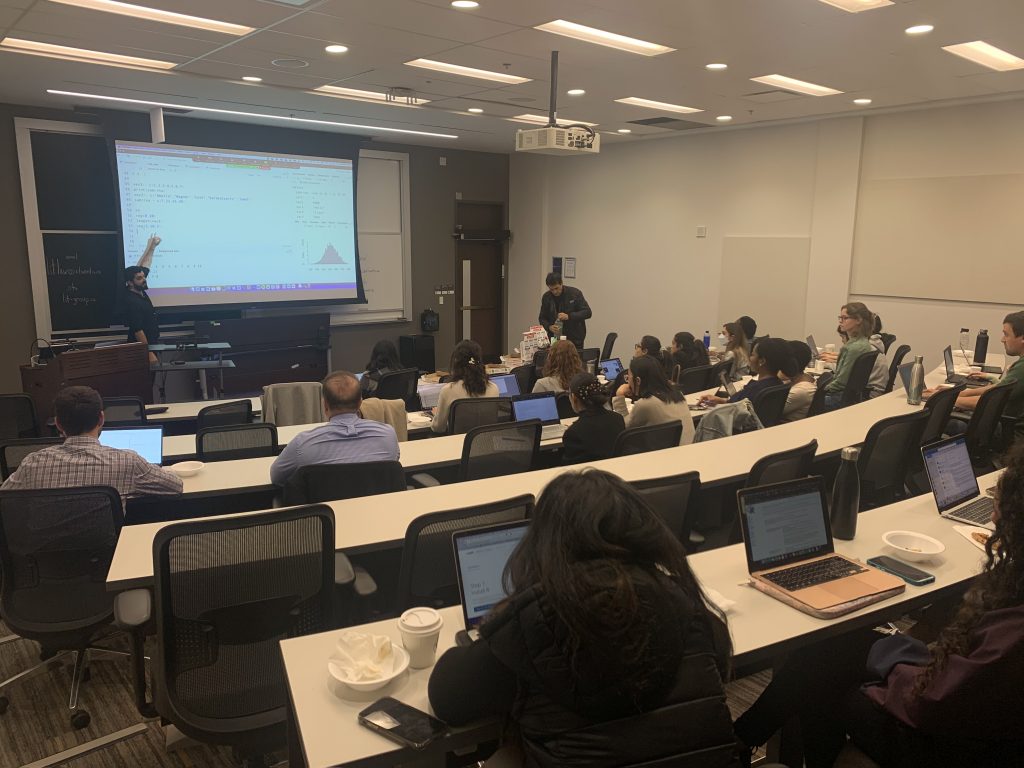From legal analytics to AI decisionmaking, coding is becoming an essential skill for lawyers
Law students and coding is something you don’t often see together. And yet, as technology continues to expand and improve, we argue that future lawyers must soon become versed in coding—or, at the very least, comfortable with knowing what coding has to offer. After all, computers are the future of law.
Computers process information at an extraordinarily high pace. This in turn enables us to analyse data at a scale never before possible. While applications of this technology may intuitively seem better suited for science and engineering, this could not be further from the truth. The digitization of legal information has already begun, with massive amounts of legal data (including judicial decisions, acts, and regulations) already being used for data analytics.
There are two main ways in which legal data is made useful via computer programming. The first is through data analytics, where large amounts of data are analyzed to uncover interesting, and possibly unknown, patterns in the data or to visualize trends. This is particularly useful in the legal field, where data analytics can be used to assess judicial behaviour, among other things. For example, data analytics can help us understand what factors are the most critical for certain judges when making a decision, perhaps revealing patterns of judicial bias. In the United States, studies using data analytics have not only confirmed that Republican and Democrat-supported judges decide cases differently, but also revealed which cases they are more likely to dissent on and under what circumstances.
Another way that computer programming can help the legal field is through machine learning and artificial intelligence (AI). Computers trained on vast quantities of legal data can be used to predict certain outcomes, which creates the potential to impact the practice of law itself. We are already seeing applications of this technology at play, with AI predicting the outcomes of hypothetical legal cases (see Blue J Legal) or reviewing contracts (see Kira Systems). Law firms are also becoming more familiar with the technology, incorporating it into their practices in different ways. At the Toronto-based firm Lenczner Slaght LLP, this sort of programming is already in play with their Supreme Court Leave program. Using quantitative empirical analysis on several years worth of data, Lenczner Slaught’s model is able to predict the likelihood of particular cases getting leave to the Supreme Court. This information can be helpful when clients are deciding whether it is worth spending the effort to push for an appeal.

To expose law students to this emerging area of legal practice, the Legal Innovation and Technology (LIT) Group is running Lunch N’ Code sessions. These sessions aim to teach law students the benefits of coding in the legal field, while allowing them to learn the basics of computer programming. Importantly, these workshops are designed for students of all backgrounds; it is critical that all students get comfortable learning these skills, whether or not they have prior coding experience. The LIT Group has already run two well-received sessions. More sessions will run in the winter semester, and students can catch up on previous material at https://lit-group.ca/lunch-and-code.
Coding is not scary, nor should it be perceived as such. At its core, learning to code is like learning a new language (no math required!). Just like any language, computer programming has rules that must be followed; and similar to other languages, there is not just one way of expressing your intention. In fact, it is logic (aka a lawyer’s pride) that plays a key role in computer programming.
As we have discussed, computers are useful in every field, including, and perhaps especially, law. This is why law students and lawyers should strongly consider learning how to code and understand how basic programming works. Even if coding isn’t your thing, it’s important to know the potential coding holds and how it can be used to inform legal work. As more firms continue to adopt legal innovation tools, it is critical that law students do not fall behind and prepare to embrace technology in their practice.
Editor’s Note: Sabrina Macklai (3L JD/MI) and Ari Fattahyani (3L) are co-founders of the Legal Innovation & Technology Group (https://lit-group.ca/), which runs Lunch n’ Code sessions throughout the year.





